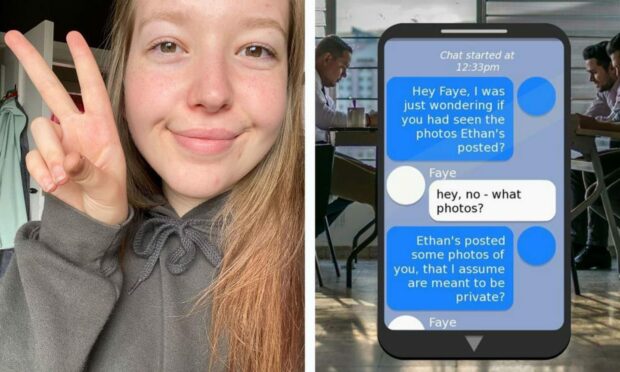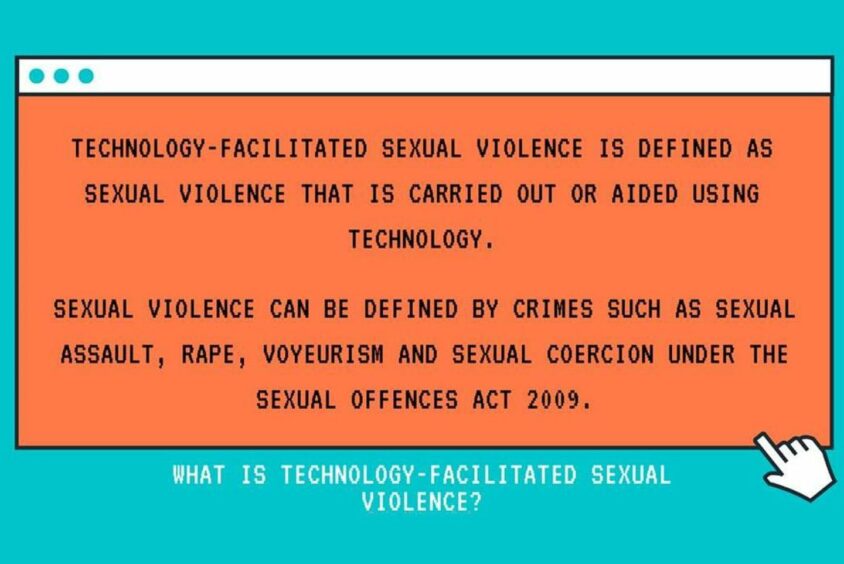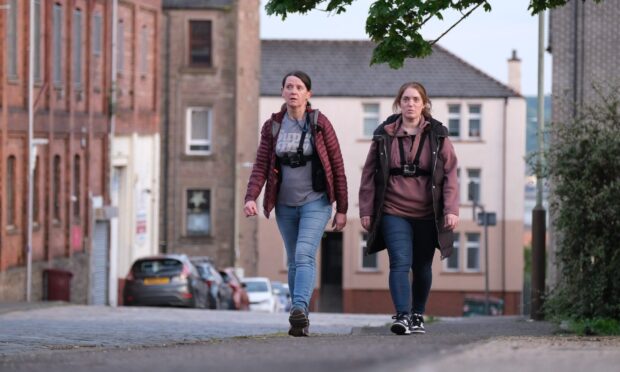An Abertay University student who created an educational game to raise awareness of online sexual abuse is now helping Police Scotland to tackle the issue in schools.
Tia Cotton, 23, who graduates on Wednesday, created Practicing Safe Sext in her final year of university to help prevent people from becoming victims of sextortion and revenge porn.
The ethical hacking graduate was inspired to create the game for her honours project after noticing a gap in the market in terms of online safety education.
She says resources provided by organisations including Police Scotland are often “reactive” as opposed to preventative when it comes to cybercrime of a sexual nature.
Tia, who is from Livingston, is now working with Police Scotland to make her game available to school students as part of their cyber harm prevention programme.
For this year's Graduation we're celebrating some of the success stories from the class of 2022.
Ethical Hacking student Tia Cotton created a game called Practicing Safe Sext as her final project.
Watch below to find out why @PoliceScotland want to roll the game out to schools🔽 pic.twitter.com/H0lhksFnxh— Abertay University (@AbertayUni) July 8, 2022
Tia says her game, which takes on a “visual novel format”, aims to address a general lack of understanding around the issue of online sexual abuse.
She said: “Not a lot of people know about sextortion or revenge porn and how it is carried out and the effects it has on people.
“I was really just trying to find an easy but sensitive way to target the issue.
“Because of the current mitigations from charities and the police – they’ve not got enough resources to be educational – it’s very much reactive measures.
“So the game itself was built to teach people in a nice, easy-to-understand manner, of what it (online sexual abuse) is and how it affects them and what to do if they do unfortunately become a victim”.
Police Scotland reached out to Tia after she posted a link to her game on Twitter.
The force is now trialling the game – originally designed for adults – among a group of youth volunteers, before it is rolled out across schools.
Tia, who already has a graduate job lined up at global cybersecurity firm QinetiQ, said: “We thought it would be good to get the volunteers playing it and get their input – because they’re under 18.
“It’s just to see if the story is suitable for them and let them tell me the challenges they face when they’re online.
“I don’t want to assume how teenagers interact online.”
Police committed to tackling online child sexual abuse
Anton Stephenson, chief inspector, Cybercrime Harm Prevention, said: “Police Scotland is committed to tackling online child sexual abuse, investing in resources and taking action to identify and apprehend those who pose a threat to our children.
“One of the ways to prevent online offences is raising awareness of online safety and empowering children and young people to recognise the potential risks and report them.
“Therefore we are currently in the early stages of trialling an educational game with some of our Police Scotland youth volunteers, which is designed to prevent young people from becoming victims of sexual harm online.”
‘Safer virtual communities’
He added: “We want to build safer virtual communities for everyone so people can enjoy the benefits of the internet while they keep safe online.
“Information for parents and carers is also available to help them take appropriate action to minimise the risks.
“Anyone with any concerns or information relating to cyber-related harm should contact police via 101; if it is an emergency, then phone 999.”












